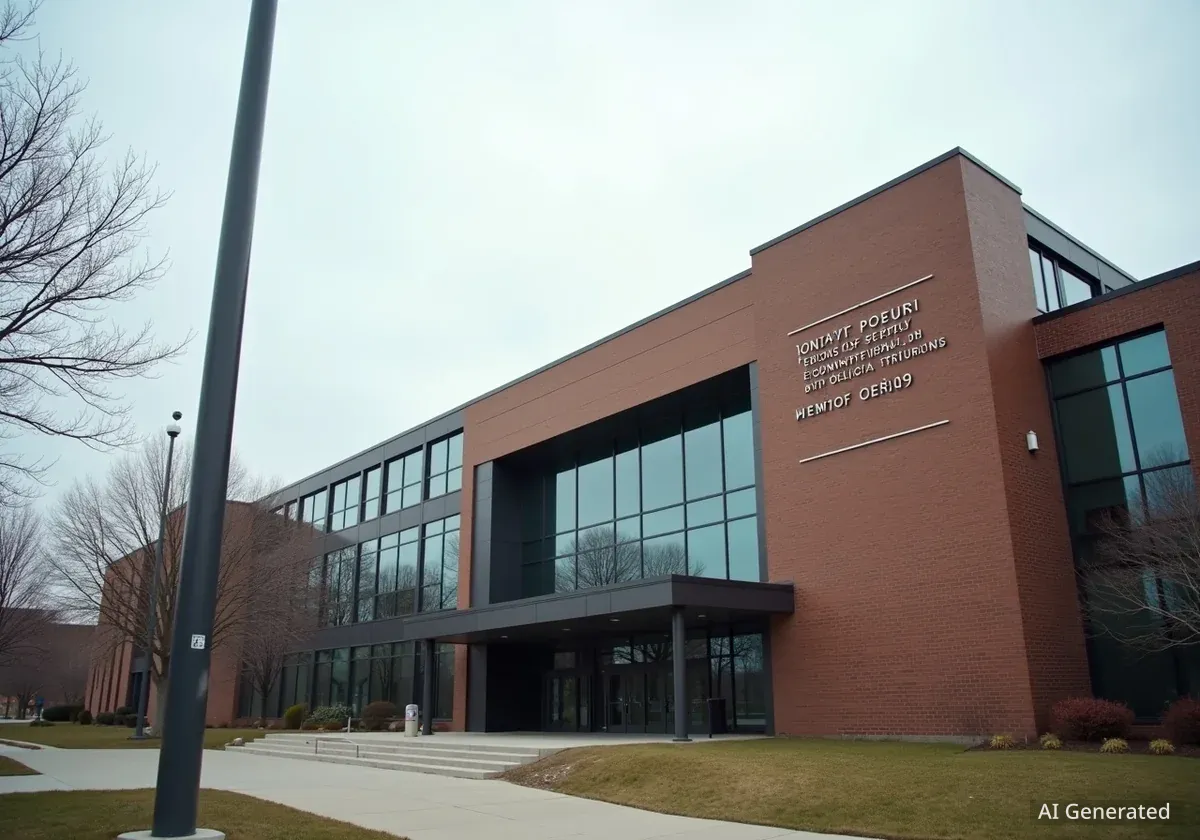Chicago Public Schools (CPS) has formally rejected demands from the U.S. Department of Education to dismantle its Black Student Success Plan and reverse its policies supporting transgender students. In a direct challenge to the federal directive, the school district stated its policies are mandated by Illinois state law and will remain in place pending the outcome of a federal investigation.
The conflict emerged after the department, under the Trump administration, accused CPS of violating anti-discrimination laws and threatened to withhold federal grant funding. CPS officials have characterized the federal demands as premature and legally unsupported.
Key Takeaways
- Chicago Public Schools refused to comply with a U.S. Department of Education order to change its policies on race and gender identity.
- The federal government threatened to cut Magnet School Assistance Program grant funding if the district did not comply.
- CPS argues its policies are required by and are in full compliance with Illinois state laws, including the Illinois Human Rights Law.
- The district's Black Student Success Plan and protections for transgender students are at the center of the dispute.
- CPS has requested a 30-day extension to formally respond, calling the federal demands "unreasonable and untenable."
Federal Government Issues Demands
The confrontation began when the U.S. Department of Education's Office for Civil Rights issued a letter to Chicago Public Schools. The letter, sent by Acting Assistant Secretary Craig Trainor, stated that the department had found CPS in violation of federal anti-discrimination statutes.
As a result, the department demanded two significant policy reversals. First, it ordered CPS to completely abolish its recently announced Black Student Success Plan. Second, it required the district to enforce a policy where students must use bathrooms, locker rooms, and compete in sports based on their sex assigned at birth.
Failure to meet these demands, the letter warned, would result in the loss of federal grant money distributed through the Magnet School Assistance Program, which supports specialized academic programs in public schools.
What is the Magnet School Assistance Program?
The Magnet School Assistance Program (MSAP) is a federal grant initiative designed to help school districts desegregate schools and improve educational quality. It provides funding for magnet schools that offer specialized curricula to attract a diverse student body. The potential loss of these funds could impact several specialized programs within the CPS system.
Chicago Schools Stand Firm on State Law
In a formal response, CPS's Acting General Counsel, Elizabeth K. Barton, firmly rejected the federal government's position. The letter described the demands as "unreasonable and untenable" and asserted that the district's policies are not only legal but are required under Illinois law.
Barton's letter highlighted a direct conflict between the federal demands and state-level mandates. "The district’s policies and practices are prescribed by state and local law, and CPS remains in compliance with those laws," she wrote. This statement positions the dispute as a matter of state versus federal authority over public education policy.
"Moreover, the Department has not articulated whether any specific students have been harmed by the Black Students Success Plan, as the Plan has not yet been implemented," Barton added in the letter.
The school district argued that the Department of Education reached a legal conclusion without conducting a full investigation. CPS has formally requested a 30-day period to prepare a more detailed response to the federal government's claims.
Conflicting State and Federal Policies
The core of the disagreement lies in two specific areas where Illinois state law and the federal directive are in direct opposition. These conflicts create a legal challenge for CPS, which is obligated to follow state legislation.
Protections for Transgender Students
Illinois law provides clear protections for transgender students. In March, the state issued official guidance based on the Illinois Human Rights Law. This guidance requires schools to permit transgender students to access facilities, including restrooms and locker rooms, that align with their gender identity.
- The federal demand insists on policies based on biological sex at birth.
- Illinois law mandates policies based on a student's gender identity.
Complying with the federal order would force CPS to violate state law and established guidance, potentially exposing the district to legal action within Illinois.
Mandate for Black Student Achievement Plan
The federal demand to eliminate the Black Student Success Plan also clashes with state legislation. A law passed in Illinois in 2024 specifically requires the Chicago school board to create and maintain a Black Student Achievement Committee. This committee is tasked with developing a plan to address the needs of Black students in the district.
The Black Student Success Plan was unveiled by CPS in February. Its goal is to provide targeted resources and support to improve academic outcomes for Black students. The federal government has not specified how this plan violates anti-discrimination laws.
The state law effectively mandates the very type of initiative that the federal government is ordering CPS to abolish. This places the district in a position where it must choose between following state law or federal directives.
Next Steps in the Dispute
Despite the federal pressure, Chicago school board members have indicated they have no intention of halting their initiatives. According to reports, the board is proceeding with its plan to announce the members of the Black Student Achievement Committee in the coming week.
This action signals the district's commitment to its current policies and its readiness to challenge the federal government's findings. The situation is now in a holding pattern as CPS awaits a response to its request for a 30-day extension.
The outcome of this conflict could have significant implications for school districts across the country that have implemented similar policies to support specific student populations or protect LGBTQ+ students. It raises critical questions about the extent of federal oversight in local education, especially when federal directives conflict with state laws.





